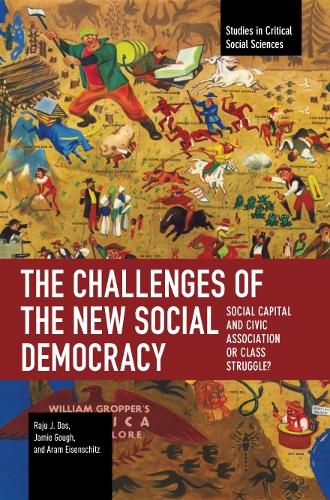Readings Newsletter
Become a Readings Member to make your shopping experience even easier.
Sign in or sign up for free!
You’re not far away from qualifying for FREE standard shipping within Australia
You’ve qualified for FREE standard shipping within Australia
The cart is loading…






In this important study, Raju J Das, Jamie Gough and Aram Eisenschitz provide a Marxist critique of new social democracy as the dominant contemporary strategy for local economic and social development.
In both the global North and South, new social democracy seeks to develop social capital, strengthen civil society, build not-for-profit enterprises, encourage self-help, and foster community ties. It seeks participatory forms of local politics to achieve a local class consensus. It promises to improve people's economic and social conditions in the face of neoliberal capitalism, and to empower them. The authors argue that this strategy is severely limited by, and internalizes, its capitalist environment. They show that social enterprise can be developed in socialist ways, and contribute to a local politics based in class struggle. But social capital cannot replace the struggle of the exploited and oppressed against capitalism and for a socialist society, a strategy which the authors outline for the local scale.
$9.00 standard shipping within Australia
FREE standard shipping within Australia for orders over $100.00
Express & International shipping calculated at checkout
In this important study, Raju J Das, Jamie Gough and Aram Eisenschitz provide a Marxist critique of new social democracy as the dominant contemporary strategy for local economic and social development.
In both the global North and South, new social democracy seeks to develop social capital, strengthen civil society, build not-for-profit enterprises, encourage self-help, and foster community ties. It seeks participatory forms of local politics to achieve a local class consensus. It promises to improve people's economic and social conditions in the face of neoliberal capitalism, and to empower them. The authors argue that this strategy is severely limited by, and internalizes, its capitalist environment. They show that social enterprise can be developed in socialist ways, and contribute to a local politics based in class struggle. But social capital cannot replace the struggle of the exploited and oppressed against capitalism and for a socialist society, a strategy which the authors outline for the local scale.